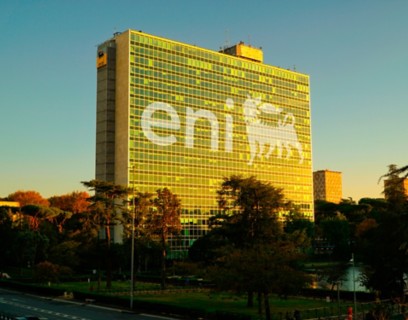Remuneration
This Report on the 2025 Remuneration Policy and on Remuneration Paid 2024 was approved by the Board of Directors on March 18, 2025, based on a proposal from the Remuneration Committee, in compliance with current legal and regulatory requirements.
The Report is divided into:
- Executive Summary: provides a summary of the market results (TSR) and the main indicators of environmental sustainability and human capital (accidents, GHG emissions, pay ratio and minimum wages), as well as of the 2025 Remuneration Policy.
- Section I: describes the 2025 Remuneration Policy for Directors, Statutory Auditors, Chief Operating Officers and the other Managers with strategic responsibilities, which is submitted for approval by the Shareholders’ Meeting of May 14, 2025 (binding vote), called to approve the financial statements at December 31, 2024, in line with the regulations in effect. The section also describes the corporate bodies involved and the procedures used for the adoption, implementation and possible revision of the Policy and the purposes and general principles that also apply to the companies directly and indirectly controlled by Eni, with the exclusion of the listed subsidiaries (also jointly controlled).
- Section II: describes the implementation of the Policy applying in 2024, with the information on the final results and an indication of the remuneration accrued and the shareholdings held, in individual form for the Directors, Statutory Auditors and Chief Operating Officers, and in aggregate form, for the other Managers with strategic responsibilities. This Section is subject to the 2025 Shareholders’ Meeting for a non-binding vote, in line with current regulations.
For further information on the contents of Eni's Report and Remuneration Policy
2025 Remuneration Policy and Connection with the business model and the Strategy
Eni’s business model supports the company’s commitment to a socially fair energy transition and is aimed at achieving solid financial returns and the creation of long-term value for the main stakeholders, through a strong position throughout the energy value chain: exploration, oil and natural gas exploration and extraction, electricity generation utilising gas and renewable sources, refining oil products, producing biofuels and chemical products from the traditional and bio cycles and developing circular economy processes. In line with that expressed in the corporate mission, Eni works to make, directly or indirectly, a contribution to the achievement of the United Nations Agenda 2030 Sustainable Development Goals (SDG) and is committed to helping to guarantee energy security, utilising its global portfolio and alliances with producer countries.
Alignment with Strategic Plan
The Remuneration Policy supports the achievement of the goals set in the Company’s Strategic Plan by promoting, through a balanced use of performance measures in the short and long-term incentive systems, the alignment of senior management’s interests with the priority of creating sustainable value for shareholders over the medium to long-term.
The 2023-2025 Long-Term Equity-based Incentive Plan supports the Strategic Plan guidelines by providing a specific environmental sustainability and energy transition goals, allocating them an overall weight of 35%.
Our governance practices
- Variable incentive plans linked to measurable and predetermined, financial and non-financial, targets, consistent with the Strategic Plan
- Pay mix of executive roles characterized by significant long-term components
- Long-term incentive vesting periods of no less than 3 years, and lock-up clauses for equity instruments
- Malus and clawback clauses in the event of error, bad faith or serious, intentional violations of laws, regulations or of the Code of Ethics and Company rules
- Structured engagement plan to respond to the expectations and feedback of our shareholders
- No excessive remuneration with respect to national and international market benchmarks
- No forms of variable remuneration for non-executive Directors
- No extraordinary incentives
- No severance package that exceeds the limits set for by labour agreements and applicable law
- No benefits of excessive value, limited to healthcare and pension benefits
Safety and environmental sustainability indicators
According to what is reported on page 9 of the Report on the 2025 Remuneration Policy and remuneration paid 2024, in 2024, the numbers associated with the Severity Incident Rate (SIR) were impacted by 6 fatal injuries suffered by contract workers. The values of the Total Recordable Injury Rate (TRIR) rose, as the decrease in hours worked during the year did not see a corresponding reduction in the total number of injuries recorded.
As regards Net Scope 1+2 Equity Upstream emissions, in 2024, net emissions totalled 6.8 MtCO2eq., down by around 25% with respect to the final figure for 2023.
Pay for performance analisys
According to what is reported on page 11 of the Report on the 2025 Remuneration Policy and remuneration paid 2024, the comparison between the trend of TSR and total CEO/GM remuneration continues to show a high correlation throughout the period from 2015-2024.
Remuneration policy
The 2025 Remuneration Policy for Directors, Statutory Auditors, Chief Operating Officers and Other Managers with Strategic Responsibilities was approved by the Board of Directors on March 18, 2025 and maintained remuneration levels unchanged with respect to the previous Policy.
The summary of the 2025 Remuneration Policy for the CEO and other Managers with strategic responsibilities is shown in the following table.
| MARKET REFERENCES | |
|---|---|
| Chief Executive Officer and General Manager (GM): Remuneration peer group consisting of European companies in the Energy and Utilities sector and other comparable industrial sectors: Shell, TotalEnergies, BP, Repsol, Equinor, OMV, RWE, Iberdrola, E.ON, ENGIE, Enel, BASF, Bayer, Rio Tinto, Anglo American, Volkswagen, Vodafone, Siemens. Direttori Generali e altri Dirigenti con Responsabilità Strategiche (DIRS): Selected markets within the national and international industrial sector for roles with the same level of responsibility |
| FIXED REMUNERATION | |
|---|---|
| PURPOSE AND CONDITIONS | FIXED REMUNERATION |
| CRITERIA AND PARAMETERS | CEO: fixed remuneration of €1,600,000, equal to that for the 2020-2023 term in relation to responsibilities and powers assigned and the continuation of the employment relationship. MSRs: fixed remuneration is based on the role assigned, potentially adjusted to median market remuneration level |
| SHORT-TERM INCENTIVE PLAN | |
|---|---|
| PURPOSE AND CONDITIONS | Motivate to achieve annual targets in a perspective of medium/long-term sustainability. The Plan is subject to malus/clawback conditions. 2025 targets for CEO (Plan targets have been adjusted in line with the evolution of Eni’s guidelines and stakeholder interests, as well as best practices in the sector) 1. Economic/financial and equity results: EBT (20%); organic Free Cash Flow (25%); Leverage (20%); 2. Environmental sustainability and human capital: upstream GHG net emissions Scope 1 and Scope 2 equity (20%); Severity Incident Rate (15%). 2025 MSR Targets Business and individual targets set on the basis of those assigned to the CEO/GM and the responsibilities assigned to them. Assessment • performance scale: 70 - 150 points (target = 100; below 70 points the result is calculated as zero); • minimum incentive threshold: 85 total performance points; • possible application to the CEO’s performance score of an adjustment coefficient of 1.1 for operations and/or results of particular strategic significance (with a maximum score of no more than 150 points) or of 0.9 for adverse scenarios and extraordinarily negative economic-financial results (with a minimum score of no less than 85 points). |
| INCENTIVE CRITERIA AND LEVELS | CEO incentive level • Incentive base: 150% of fixed remuneration; • Vested incentive: between 85% and 150% of incentive base, with an annual portion (65%) and deferred portion (35%) subject to three-year results and disbursed in a variable amount between 28% and 230% of the awarded portion. • Annual amount payable: - threshold of 83% of fixed remuneration; - target of 98% of fixed remuneration; - max. 146% of fixed remuneration. • Payable deferred portion: - threshold of 38% of fixed remuneration; - target of 68% of fixed remuneration; MSRs incentive level Incentive base: up to a maximum of 100% of fixed remuneration; • Annual amount payable: up to a maximum of 98% of fixed remuneration; • Payable deferred portion: up to a maximum of 121% of fixed remuneration. |
| LONG-TERM EQUITY-BASED INCENTIVE PLAN 2023-2025 | |
|---|---|
| PURPOSE AND CONDITIONS | Encourage long-term value creation for shareholders and sustainability. The Plan is subject to malus/clawback conditions and 50% of the shares granted are restricted for 2 years after the grant date; for the CEO/GM, this is equivalent, in the event of shares granted annually equal to the value of the LTI awarded, to a shareholding objective, achievable within 2 years, of a value equal to 1.5 times the fixed remuneration. |
| CRITERIA AND PARAMETERS | No. of shares awarded Determined by the ratio between the monetary value and the price of the award, calculated as the average of the daily prices recorded in the four months before the month in which the Board approves the award. Three-year targets (for the 2025 award, Plan targets were adjusted in line with the evolution of Eni’s strategies and stakeholder interests, as well as best practices for the sector) 1) 25% Market Target: Total Shareholder Return (relative); 2) 40% Financial and Equity Targets (absolute): 25% Organic Free Cash Flow and 15% Leverage; 3) 35% Environmental Sustainability and Energy Transition Targets (absolute): 20% GHG net emissions upstream Scope 1 and 2 equity and 15% Bio-jet fuel production capacity. Performance measurement over a 3-year period • Relative parameters: measured against the Peer Group of six European energy companies (Shell, TotalEnergies, BP, Repsol, Equinor and OMV); • Absolute parameters: measured against targets set in the Strategic Plan. No. of shares assigned at the end of the vesting period Determined as a function of performance over 3 years applying a variable multiplier between 40% (threshold) and 180% (maximum value) of the number of shares attributed. |
| INCENTIVE LEVEL | CEO: • CValue of awarded shares: up to a max amount equal to 150% of total fixed remuneration. • Value of granted shares: - threshold of 60% of fixed remuneration; - target of 183.75% of fixed remuneration; - maximum 270% of fixed remuneration. MSRs: • Value of awarded shares: depending on the level of the role, up to 75% of fixed remuneration; • Value of granted shares: depending on the level of the role, up to 135% of fixed remuneration. NB: the monetary values are net of the impact of any changes in the stock price |
| EMPLOYEE STOCK OWNERSHIP PLAN 2024-2026 | |
|---|---|
| PURPOSE | Strengthen the sense of belonging for Eni people, participation in growing company value, in line with the interests of shareholders, while also supporting purchasing power. |
| CRITERIA AND PARAMETERS | The Plan provides for three annual assignments from 2024-2026 and, in particular, for 2024 and 2025, two assignments of Eni shares free of charge for an individual monetary value of €2,000, while for 2026 a co-investment method will be utilised which calls for the assignment of shares free of charge by the company against the purchase of Eni shares by the employee, utilising a 50% matching mechanism up to a maximum of €1,000. Shares will be subject to a three year lock-up clause, for shares assigned free of charge, and a one year lock-up for any shares purchased by employees. For the Chief Executive Officer and General Manager, Chief Operating Officers and Managers with Strategic Responsibilities and Executives participating in the LTI Equity-Based Plan, the assignment of a single symbolic share is envisaged. For more detailed information, including the cost and share capital, please see the Information Document for the Plan(a). |
| OTHER TREATMENTS | |
|---|---|
| BENEFITS | |
| PURPOSE | Retain managers in the Company |
| CRITERIA AND PARAMETERS | Benefits, mainly insurance and welfare related, defined in national collective bargaining agreement and in supplementary company level agreements for Executives (including the CEO and MSRs). • Supplementary pension scheme; • Supplementary healthcare scheme; • Insurance; • Car for business and personal use. |
| PAYMENTS DUE IN THE EVENT OF TERMINATION OF OFFICE OR EMPLOYMENT | |
| PURPOSE | Protect the Company from potential litigation and/or competitive risks associated with terminations without just cause. |
| Termination indemnity CEO: for the role of CEO: equal to two years of fixed remuneration (in line with Recommendation 2009/385/EC) in the case of early termination of a term or non-renewal, and in cases of dismissal for just cause following an essential reduction of powers. For the role of General Manager: indemnity in the case of consensual termination equal to two years of fixed and short-term remuneration, within the limits of the protections established in the collective bargaining agreement(b) (CCNL). Indemnities are not due in the event of dismissal for “just cause” and resignation not justified by a reduction of delegated powers. MSRs: for Managers with Strategic Responsibilities, as for all Eni executives, there are various treatments agreed upon individually based on criteria established by Eni for cases of retirement incentives which take into account the role held and performance, within the limits of the protections established in the same CCNL(b) which call for, in the case of terminations without just cause, a maximum of three years of total actual remuneration, including the notice. |
|
| Non-compete agreement CEO: the continuation of the non-compete agreement already activated by the Board of Directors on March 14, 2019. Agreement Requirements • validity: 18 months; • non-compete constraints: for the Oil & Gas sector, this includes 19 countries, updated to also include companies in the Circular Economy sector. Agreement Payment • fixed component: €1.8 million; • variable component: determined as a function of the average of results for the STI Plan in the previous three years, between €500,000 (performance target) and €1,000,000 (maximum performance). MSRs: only for cases of termination presenting high-competitive risks relating to the nature of the position; payment based on current remuneration levels and the extension of period and commitments undertaken. |
(a) Prepared pursuant to Article 114-bis of Legislative Decree 58 of February 24, 1998 and Article 84-bis of the Consob Issuers Regulation (resolution 11971 of May 14, 1999), published on the Company’s website in the “Governance/Remuneration” section in compliance with current regulations.
(b) In cases of termination not due to just cause, CCNL protections call for up to a maximum of 36 months of total remuneration (fixed remuneration, variable short and long-term incentives, benefits), including that due by way of notice indemnity, consistent with national regulations (article 2121, Civil Code).
Remuneration accrued
In compliance with the provisions of the Issuers Regulation, the table below reports the remuneration accrued in 2024 by Directors, Statutory Auditors, the Chief Executive Officer and General Manager and other Chief Operating Officers, and, in aggregate form, Managers with Strategic Responsibilities. The remuneration received from subsidiaries and/or associates, except that waived or paid to the Company, are shown separately. All parties who filled these roles during the period are included, even if they only held office for a fraction of the year.
In particular:
- the column labelled “Fixed Remuneration” reports fixed remuneration and fixed salary from employment due for the year (on an accrual basis), gross of social security contributions and taxes to be paid by the employee, in relation to the period in which the office and/or position was held. Details of the compensation are provided in the notes, and any indemnities or payments with reference to the employment relationship are indicated separately;
- the column labelled “Remuneration for participation on Committees” reports (on an accrual basis) the compensation due to Directors for participation in Committees established by the Board, in relation to the period in which the office and/or position was held. In the notes, compensation for each Committee is indicated separately;
- the column labelled “Variable non-equity remuneration” under the item “Bonuses and other incentives” shows the incentives payable in the following year due to rights vested in the period, following the assessment and approval of related performance results by relevant corporate bodies, in accordance with that specified, in greater detail, in the table 2 “Monetary incentive plans for the Chief Executive Officer and General Manager, for Chief Operating Officers and for other Managers with strategic responsibilities”; in the event of unavailability of the performance result at the date of approval of the Report, the table shows the estimate of the incentives accrued considering performance not yet verified at target level; item “Profit sharing” does not show any figures since no profit-sharing mechanisms are in place;
- the column labelled “Benefits in kind” reports (on an accrual and taxability basis) the value of any fringe benefits awarded;
- the column labelled “Other remuneration” reports (on an accrual basis) any other remuneration deriving from other services provided;
- the column labelled “Total” reports the sum of the amounts of all the previous items;
- the column labelled “Fair value of equity compensation” reports the relevant fair value for the year related to the existing stock option plans, estimated in accordance with the international accounting standards that allocate the related cost in the vesting period;
- the column labelled “Severance indemnity for end-of-office or termination of employment” reports indemnities accrued, even if not yet paid, for terminations that occurred during the financial year, or in relation to the end of term in office and/or employment.
In this section, according to the provisions of current legislation, the Remuneration Reports of previous years as well as the Consob information documents relating to the share-based incentive plans.






















